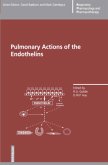Human actions can be identified by species, such as murder, theft, or almsgiving. But how does one determine to which kind an action belongs? Joseph Pilsner explores Thomas Aquinas's answer to this philosophical question.
Thomas Aquinas believed that human actions have species, such as theft or almsgiving. A problem arises, however, concerning his teaching on how such moral kinds are determined. Aquinas uses five different terms - end, object, matter, circumstance, and motive - to identify what gives species to human actions. Although similarities in meaning can be discerned between certain of these terms, apparent differences between others make it difficult to grasp how all five could refer to what
specifies human actions. Joseph Pilsner examines and compares Aquinas's understanding of these five terms to see if a consistent account of his teaching on specification can be proposed.
Hinweis: Dieser Artikel kann nur an eine deutsche Lieferadresse ausgeliefert werden.
Thomas Aquinas believed that human actions have species, such as theft or almsgiving. A problem arises, however, concerning his teaching on how such moral kinds are determined. Aquinas uses five different terms - end, object, matter, circumstance, and motive - to identify what gives species to human actions. Although similarities in meaning can be discerned between certain of these terms, apparent differences between others make it difficult to grasp how all five could refer to what
specifies human actions. Joseph Pilsner examines and compares Aquinas's understanding of these five terms to see if a consistent account of his teaching on specification can be proposed.
Hinweis: Dieser Artikel kann nur an eine deutsche Lieferadresse ausgeliefert werden.








